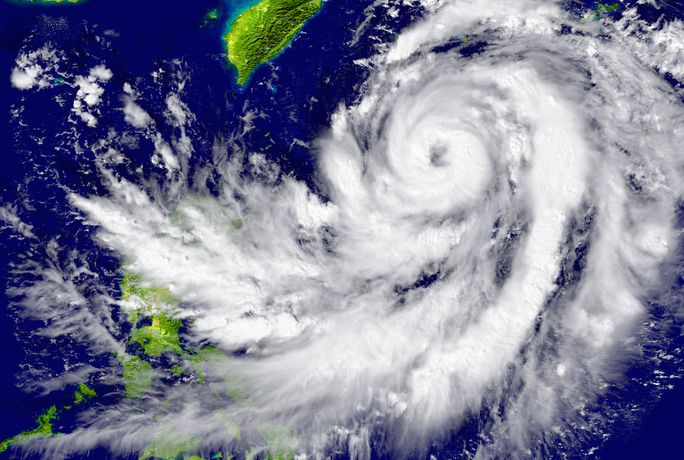Will Natural Disasters End Civilization?
Can Western societies learn the lessons of past civilizations and avoid collapse? Are we heading to certain disaster? What are the drastic changes that we need to make?

Civilizations have come and gone. No civilization in mankind’s history has remained constant. Eventually they have all failed.
What about today’s Western societies? Are we immune to such a fall? Or has the West become “too big to fail,” a phrase heard often in the aftermath of the 2008 global financial crash? One thing the 2008 crash should have taught us is that in a closely connected, technologically advanced civilization, a problem in one location can quickly spread to become a global crisis.
Many see the risk of climate change as the most drastic threat to our civilization. Consider the following headlines:
- “BirthStrikers: Meet the Women Who Refuse to Have Children Until Climate Change Ends”: There is a movement of women who are refusing to have children because of fear of “climate breakdown and civilisation collapse.”
- “School Pupils Call for Radical Climate Action in UK-Wide Strike”: Recently thousands of school kids and young people left classes all over the U.K. demanding more action from politicians on climate change. Many backed the kids, saying “the tragic and desperate facts” of the unfolding climate emergency forced young people’s actions.
- “Harvard Scientists Say Their Wild Plan to Dim the Sun Could Actually Work Safely”: Harvard University physicist David Keith floated the idea of solar geoengineering to dim the amount of sunlight that reaches the earth in an attempt to offset global warming.
- “Assembly Calls on the Mayor to Declare a Climate Emergency”: The London Assembly called on the mayor of the city to declare a “climate emergency” to ensure London is carbon neutral by 2030.
Climate change
It is true that human beings, in many ways, have failed to “tend and keep” the earth—as God instructed Adam and Eve to do (Genesis 2:15). The effects of our neglect of God’s creation are obvious:
- “World’s Oceans Clogged by Millions of Tons of Plastic Trash”: Based on data published in 2010, it’s estimated that 8 million metric tons of plastic pollution enter the oceans each year.
- “Salt-Water Fish Extinction Seen by 2048”: Human activities of overfishing, pollution and habitat loss are driving certain fish populations to extinctions. “Already, 29% of edible fish and seafood species have declined by 90%—a drop that means the collapse of these fisheries.”
- “An Oil Leak in the Solomon Islands Is Threatening the World’s Largest Raised Coral Atoll”: When accidents occur during the transportation of oil across the seas, tremendous damage is done to the water and aquatic life.
We could discuss many other ways mankind has damaged our planet, including hunting certain animals to the point of extinction, water and air pollution, deforestation, excessive use of chemical fertilizers, warfare, arson, pesticides, and on and on the list could go.
When God created human beings, He put the creation under our authority (Genesis 1:28; Psalm 8:4-6). We have been given the power to care for it—or destroy it. It seems that we have done more to damage this earth than to beautify and care for it. Revelation warns that when Jesus returns, He will “destroy those who destroy the earth” (Revelation 11:18).
Scientists point out an increase in extreme weather, which is causing more and more damage each year. People may debate the exact causes (and alleged political solutions) of these extreme weather events, but is there a root cause that few people consider?
Effect of sins
In the legal world (particularly in insurance), a natural disaster is referred to as an act of God. But do people really believe that these are acts of God?
One of the greatest climatic events this earth has seen is described in the Bible. This event led to a flood that killed all living land creatures and nearly all people. It’s known as Noah’s Flood.
In numerous places the Bible shows that our behavior brings curses—sometimes through the environment.
What exactly caused the Flood? God described the time shortly before the Flood as an era of great wickedness, corruption and violence (Genesis 6:5, 11, 13).
As a result of mankind’s destructive behavior, God decided to destroy the earth and start fresh with Noah and his family (verse 17-18). Man’s sinful acts brought the environmental catastrophe of the Flood.
To learn more about what we can learn from the Flood, read “As in the Days of Noah: Warnings for Today.”
Curses due to sins
In numerous places the Bible shows that our behavior brings curses—sometimes through the environment. Examples include:
- Harvest failures and irregular rainfalls: At times, God will withhold rain from places that need it because of people’s sins (Deuteronomy 28:23-24). His purpose for doing this is to encourage people to repent and seek God—as they are seeking water (Amos 4:7-8).
- Curse due to breakdown of families: God warns that unless we remember His laws and restore broken family relationships, He will “strike the earth with a curse” (Malachi 4:4-6).
- Plagues in Egypt: Due to Pharaoh’s disobedience, God sent plagues upon Egypt, including plagues of frogs, lice, flies and locusts, pestilences causing boils, and a great hailstorm (Exodus 8:2-4, 16-17, 21, 9:8-9, 22, 10:4).
- Jonah’s disobedience: When the prophet Jonah disobeyed God, God sent a great storm to stop him from running away (Jonah 1:4).
All these examples show us that God can—and at times does—directly influence the weather because of man’s spiritual deficiencies. That doesn’t mean that every natural disaster is caused by God—because most are probably not. But as the above examples show, God does influence the weather at times to get people’s attention.
Ezekiel’s prophecy about that future time paints a hopeful picture of a better world to come:
“The desolate land shall be tilled instead of lying desolate in the sight of all who pass by. So they will say, ‘This land that was desolate has become like the garden of Eden; and the wasted, desolate, and ruined cities are now fortified and inhabited.’ Then the nations which are left all around you shall know that I, the LORD, have rebuilt the ruined places and planted what was desolate. I, the LORD, have spoken it, and I will do it” (Ezekiel 36:34-36).
Though weather catastrophes will be a factor in the downfall of civilization as we know it, a new—and better—civilization will be built on its ruins.
To learn more about this coming time of peace, read our article about the coming 1,000-year Millennium.

Date Posted: March 22, 2019



